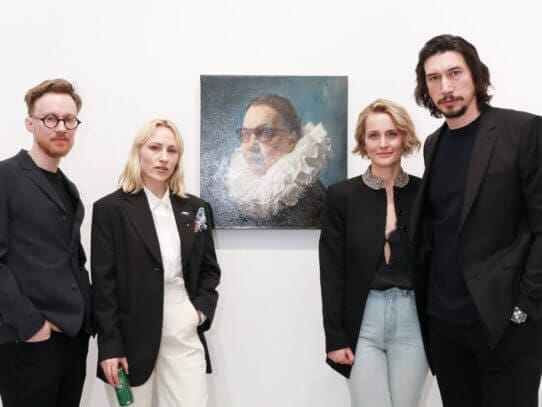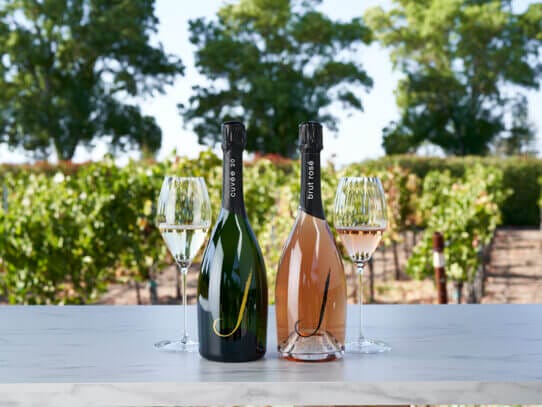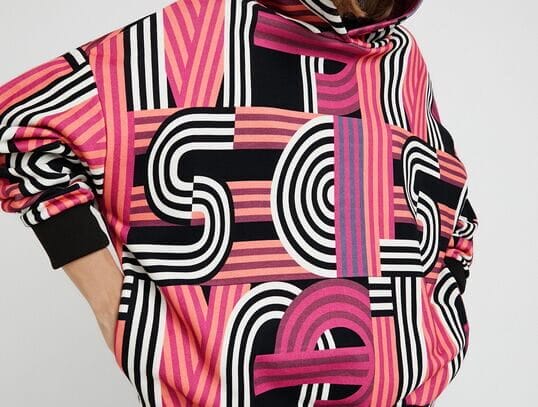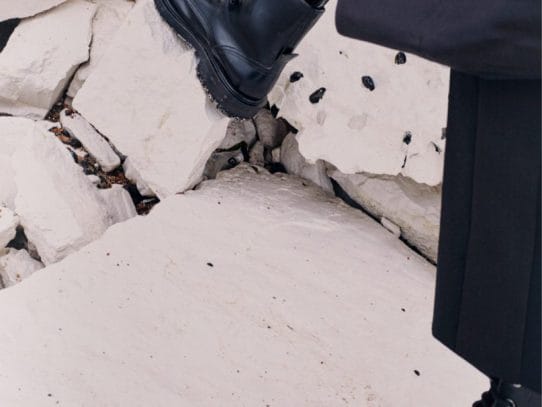Photography: Macrae Marran - Model Luca La Via Over the last few years, menswear tailoring has been settling down to a relaxed look, and it's easy to see why. Soft fabrics and more generous cuts provide a flattering silhouette with a less formal stance. And, when it comes to the millennial and Gen Z market segmentation, the importance of gently aged material and relaxed style should be considered. Whether it is a casual suit or separates, the worn in look is leading the trend in what Style Lujo likes to refer to as effortless style.
By Joseph DeAcetis Published: November 2 2023
Over the last few years, menswear tailoring has been settling down to a relaxed look, and it’s easy to see why. Soft fabrics and more generous cuts provide a flattering silhouette with a less formal stance. And, when it comes to the millennial and Gen Z market segmentation, the importance of gently aged material and relaxed style should be considered. Whether it is a casual suit or separates, the worn in look is leading the trend in what Style Lujo likes to refer to as effortless style.
Garment Dying:
The highly technical alternative of garment dying requires coloring clothing after they’ve been cut and sewn. Conversely, the standard procedure starts with fabrics worn and dyed by the roll. Nevertheless, if you make an item and then apply the dye, this process will soften the color and texture, thus giving an elegant vintage look. This new innovative process has helped transform the feel and finish of menswear – so much so that it has ruffled the feathers of apparel manufacturers to the point where it is pivoting them into a more modern direction.
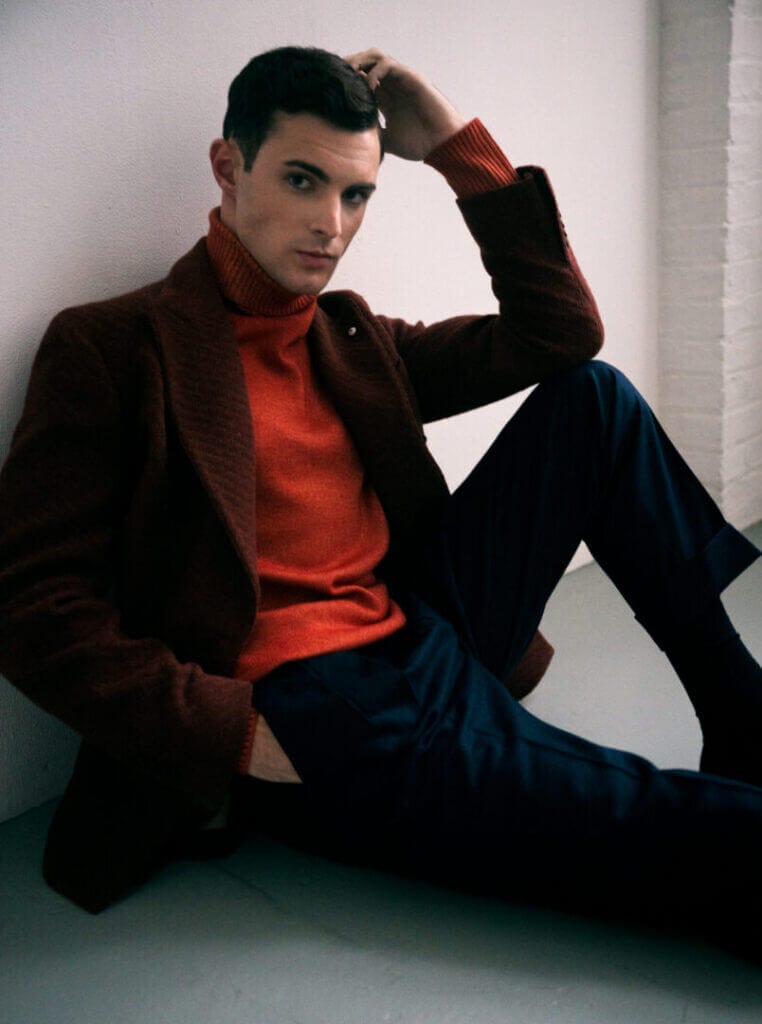
Photography: Macrae Marran - Model Luca La Via Over the last few years, menswear tailoring has been settling down to a relaxed look, and it's easy to see why. Soft fabrics and more generous cuts provide a flattering silhouette with a less formal stance. And, when it comes to the millennial and Gen Z market segmentation, the importance of gently aged material and relaxed style should be considered. Whether it is a casual suit or separates, the worn in look is leading the trend in what Style Lujo likes to refer to as effortless style.
It is essential to know that even before they’ve been worn, garment-dyed items have endured heat and friction. However, fabrics react to water unpredictably, making it a high-risk and costly manufacturing process. All materials shrink at different rates and respond independently with the same dyes. This is where textile scientists come into play. I have been on several factory tours where I witnessed with my own eyes how they take the finished articles and submerge them in a vat of dye- taking extreme care not to damage the garments.
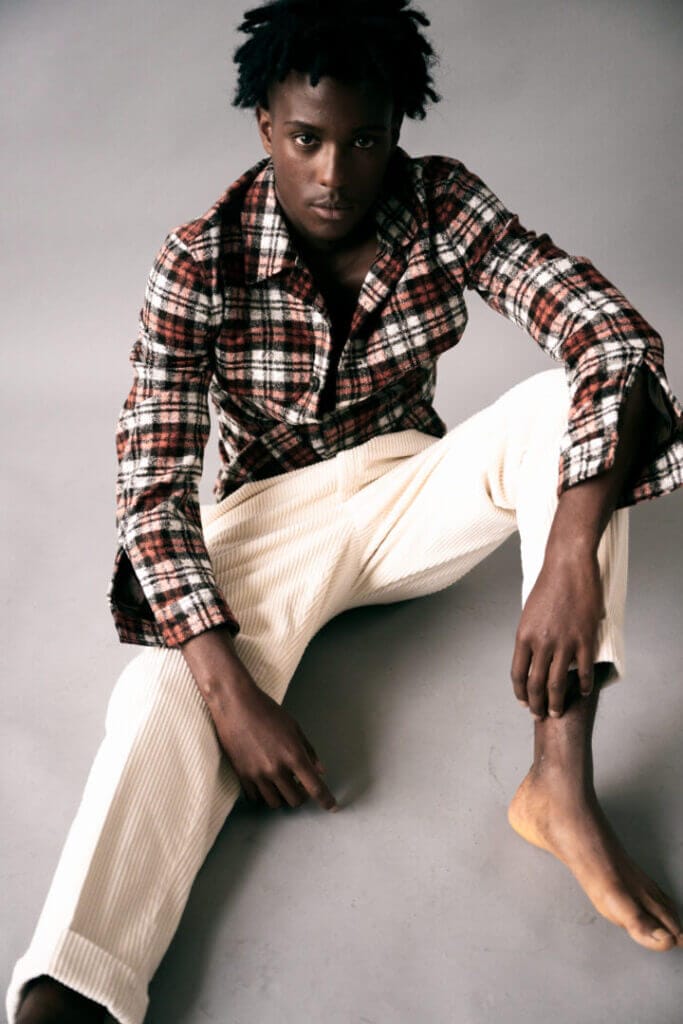
Benefits:
In today’s time, the rewards of the new technique are immediately apparent. You see, garment-dyed pieces have a softer hand and a unique range of color depth. Often, colors are palest on the exposed edges and the richest- found deep within the crevices where the dye naturally accumulates. Think of it as the fine art of menswear. Unlike dyed fabrics, garment dying allows the paint to follow the shape. The result catches the interest of today’s customers due in part to the crisp uniformity you get that feels lived in from the very first wear. And, I find it intriguing that dye reacts independently to the surface of the cloth by highlighting stitching, fabric finishing – even pockets.
This fall/winter 2023/24 season, garment dying appeals to designers and brands alike because it gives them artistic control over coloring and finishing.
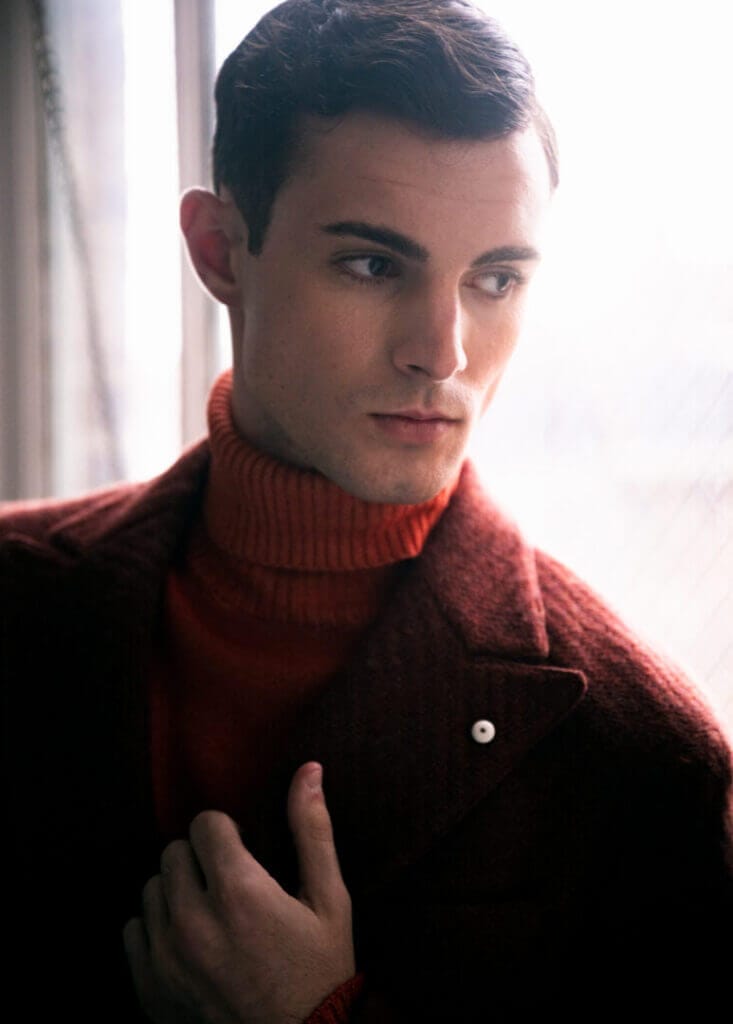
L.B.M. 1911:
When it comes to garment dying, Italy has a competitive advantage. More to the point, Italians have specialized in developing tintura in capo.
In talking about innovation in Italian menswear, L.B.M. 1911 excels in the field, producing a garment-dyed collection of jackets separate in modern style; it is proudly rooted in a century-old tradition, exclusive Italian-made tailoring, with an innovative approach to research and innovation.
The brand’s interpretation of soft tailoring embodies the refinement of classic Italian menswear -ripe for revolution and set for the global market. The season, the LBM 1911 collection seems to have a voice all its own – finely balanced tailoring, perfect for today’s office time and remote ZOOM meetings as well as evening events, crisp but not too formal, refined but not dull. The best-kept secret is that it looks like a live-in heritage piece that exudes presence and remains on-trend.
And while temperatures remain cold, watch for L.B.M.’s cozy and soft-to-the-touch sweaters and spectacular garment-dyed jackets. The garment-dyed items in this collection give pieces a heritage character without the accumulated product fatigue. More importantly, it lends a refined tailoring alternative for men aiming to convey a well-put-together look in a more relaxed way.
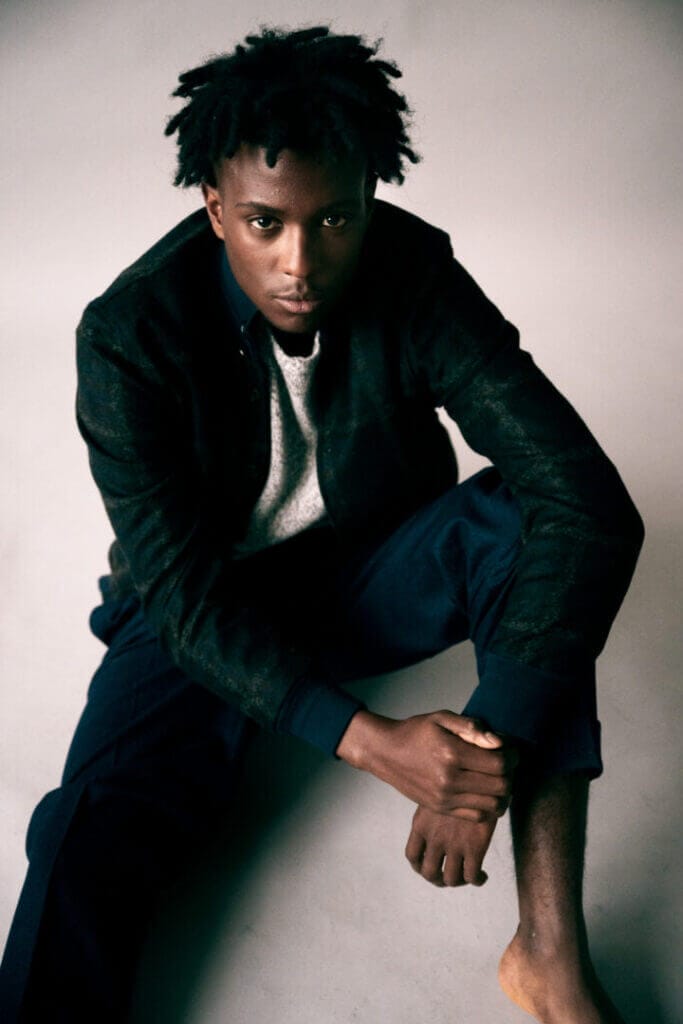
L.B.M.1911 clothes are perfect for the most diverse occasions, with day-to-night outfits for everyday office life and leisure-time activities. Men who wear L.B.M.1911 like to emphasize their unique style.
The iconic pin on the lapel of L.B.M.1911 jackets is a distinguishing feature of the exclusive L.B.M.1911 style.
The L.B.M. 1911 brand was created as a trademark epitomizing research and has always been perfectly balanced between sportswear and sartorial attire. Its launch fifteen years ago marked a fundamental stage in the story of Lubiam. This Mantua company, for over a hundred years, has been synonymous with excellence in men’s tailoring labeled Made in Italy.
The L.B.M. 1911 collection was introduced in 2005 on a hunch of Giovanni Bianchi, who, together with his siblings Edgardo, Giulia, and Gabriele, represents the fourth generation of the Bianchi family.
It was in the early 2000s when Giovanni Bianchi, the Director of Lubiam’s Style Office, decided to go for radical product innovation and depart from ‘formal’ apparel while adhering to its principles in terms of sartorial quality, thereby starting an evolutionary process that led the company to specialize in the ‘garment-dyed’ sector. The blazer is the company’s ‘core’ garment. Over the years, this mainstay of male wardrobes attracted a lot of attention: more and more resources were invested in researching and developing new methods and treatments to revamp and reinvent it.
Over time, the jacket, both as an individual garment and part of a suit, has been deconstructed and streamlined and has become the focus of pioneering studies, particularly concerning dyeing and washing treatments and special artisan aging techniques that give an ‘old/lived-in’ effect.

Creative Fashion Director and Producer: Joseph DeAcetis
Photography: Macrae Marran
Photo/ Fashion Associate: Agata Drogowska
Grooming: Stetson Bryan
Model: Luca La Via
Model: Cory McDonald
Menswear: LBM 1911
Cristiano Magno CMPR
Save Article



